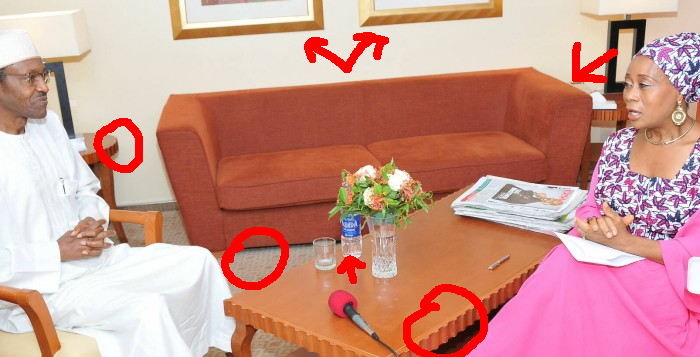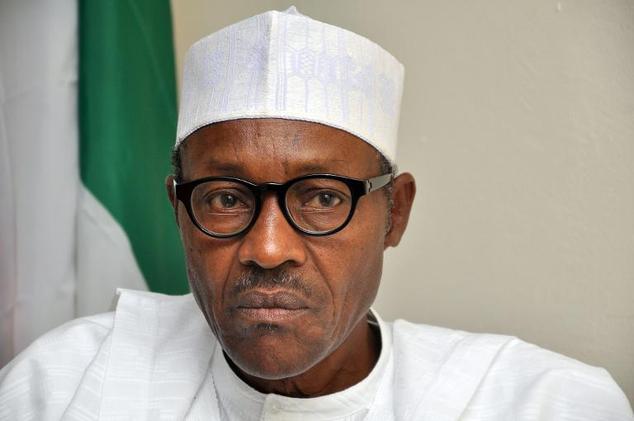Dear Buhari, let me begin by making it clear that I neither supported nor voted for you. In exercise of my democratic and ideological opinion, I didn’t support you because I strongly disagreed with your policy of supporting Sharia, an unconstitutional initiative that continues to have consequences for the nation, your support for Boko Haram at a time thousands of lives were being lost, your non acceptance of the outcome of the 2011 elections which was adjudged free and fair leading to the deaths of almost a thousand innocent people and your non-support for a sovereign or national conference that would help to usher in a more just and harmonious nation even in the face of ever increasing ethno-religious cleavages and conflicts. I believed and still do that your decisions have been shaped more by an allegiance to your ethnic and religious group than it is to Nigeria as a whole. I see you as a man from a region that has never allowed post-war reconciliation/nation building and that for decades up to the present times pursued post-war policies of institutionalised marginalisation and exclusion against the East in everything from federal projects to federal appointments. I see you as a person with a “born to rule” sense of entitlement that has been advanced historically in excluding other ethnic groups from top positions including the presidency. Ultimately, I see you as a man with no respect for Nigeria’s diversity.
For the above reasons amongst others, any objective appraisal of Nigeria would suggest that the nation is on a sure route to perdition. No nation can succeed and thrive without essentials such as justice and equality. The absence of justice, equality and other fault lines birthed the struggle for a sovereign national conference. But unfortunately leaders who have been stuck to the narrow interests of their region and have thus neglected to do the needful that would consolidate and move the country forward has been the Nigerian experience which is responsible for the stagnation and increasing ethno-religious cleavages. You demonstrably manifest solidarity with the core Northern school of thought that believes in sustaining the status quo no matter how faulty, and that believes Nigerian unity should be predicated on force rather than mutual consent, social justice and nation building even as such uncivilised ideas have become outdated.
I see you as one of those who have learnt no lessons from the Nigeria- Biafra ethnic war and the ongoing Boko Haram terrorism, which informs your continuing refusal to accept that the fundamental drivers of such conflicts and divisions are existing and growing contradictions that needs to be addressed not denied through exhaustive national conference/dialogue and follow-up nation building in the interest of the whole nation, without which such conflicts will continue to re-occur and Nigeria will inevitably disintegrate sometime in the future.
When the American intelligence community predicted Nigeria’s break-up by 2015, the date was never etched in stone. What is more important are the reasons that made them draw such conclusions. Insofar as those reasons remain unresolved and unsettled, we would only have succeeded in postponing the evil day. I see you as one of those who remain in denial of the Nigerian reality and the fundamental reasons for which the CIA indicated Nigeria’s eventual implosion. Simple common sense would clearly indicate that Nigerian unity cannot happen just by wishing it, there has to be a concerted effort of dialogue, sacrifices and nation building to build a nation watered by justice and equality which all would willingly consent to and where ethnicity would be sufficiently diminished such as no longer to be an issue. Having once divorced from your first wife Hajia Safinatu Yusuf in 1988, you should ordinarily understand by now the similarities between a marriage and a nation both of which are unions that can only thrive successfully where there is understanding/ harmony and the fact that none can be ideally sustained by force. Your divorce also sufficiently registers the fundamental logic that once there are irreconcilable differences in marriage as in a nation peaceful divorce in a civilised way should always be the best and only option. Unfortunately, you belong to the group that has advanced Nigerian unity only on the flawed basis of war rather than by nation building.
The above are the ideological premises on which I disagree with you; premises which I am sure you appreciate constitute the fundamental fault lines of the Nigerian question. Given your antecedents, there are many including myself who harbour a nagging suspicion that your regime will be a discriminatory sectarian regime that might return Nigeria to the dark days. Recent events have only helped to heighten those suspicions as your party and supporters have carried on with a vicious smear campaign against those who didn’t vote for you. Regrettably, a dangerous anti-democratic mindset that threatens to destroy the democratic gains that made your emergence possible. Yet in spite of my misgivings, I am also willing to give the benefit of the doubt. I am thus, writing this letter to help highlight what the promised change should mean in the context of Nigeria’s existential crisis. Having come to power on a populist slogan and wanton promises, your regime is riding on high hopes and is set to be the most scrutinized in Nigeria’s history. Excuses and failure will surely be too costly as your regime, given the dynamics of its emergence could well be Nigeria’s last chance to determine if it can succeed as a nation or not.
What Change Should Mean
Even by a layman’s definition, change basically means doing things differently from the way it was done before, which in Nigeria’s case brought the nation to ruin and deepened ethno-religious cleavages. It is self evident that any genuine initiative for change must broadly address growing tribalism and ethno-religious cleavages, corruption, infrastructure, poverty, youth unemployment amongst others as highlighted below.
Tribalism: Addressing Growing Ethnic and Religious Divisions
Contrary to the opinion of some, tribalism/growing ethno-religious divisions and not corruption is Nigeria’s greatest existential problem that needs to be urgently addressed. A great majority of nations that have disintegrated or descended into bloody conflict did so not because of corruption but because of ethno-religious fault lines and divisions. When Nigeria for example descended into pogroms and war in 1966-67, the major driver of the conflict was tribalism and not corruption. When the Scottish went for a separatist referendum in September 2014, it was not because of corruption but because of ethnic factors. When the Catalans in Spain push for independence, it’s not because there is corruption in Spain but because of ethnic factors. The reality is that Nigeria is a dangerously fragile country that is most likely to disintegrate or descend into conflict because of growing ethnic and religious divisions and not corruption per say. If anything, corruption itself is largely sustained by existing tribal divisions that have mostly made it impossible to prosecute corrupt persons across tribal divides.
In line with the slogan of change, Buhari will have to urgently tackle the problem of ethno-religious divisions firstly through a radically inclusive government; secondly by implementing the fundamental aspects of the national conference report that deals with nation building such as rotational presidency etc; thirdly through an aggressive nation building initiative as to be formulated by experts; fourthly by addressing once and for all the issue of citizenship rights, rotational presidency, equality of zones, true federalism, massive decentralisation; fifthly by equitable distribution of development across the geo-political zones and sixthly by convening a further sovereign conference of ethnic nationalities that will continue the dialogue on how best to create a nation sufficiently harmonious and integrated as to be consensually consolidated as a true nation.
War on Corruption:
Winning the war on corruption in a deeply divided country like Nigeria requires determination and courage. The task is not made easier by the fact that Buhari’s sponsors are all implicated in corruption at a massive scale. There are also many institutional barriers to fighting corruption such as the immunity clause that protects governors from prosecution and a corrupt judicial system. Firstly the war on corruption can only be won by not allowing any sacred cows such as Buhari’s sponsors and former presidents to be immune from prosecution; secondly governors should be stripped of immunity in matters relating to corruption; thirdly time limited special courts manned by judges of notable integrity should be constituted to dispense with corruption cases and fourthly the EFCC should be reconstituted and made autonomous.
Infrastructure and Decentralisation:
Nigeria has an awkward and non-development friendly system that concentrates development in a few federal centres such as Lagos and now Abuja to the exclusion of other regions. In a nation with a large and growing population, this is clearly unsustainable. New cities and centres of development should be created across the six geo-political zones with massive programs of decentralisation that includes everything from ports, airports, to roads. All sea and river routes in Nigeria should be developed to provide for functional sea and river ports across Nigeria to diversify and facilitate imports, exports and movement of freight across Nigeria. All geo-political zones should have at least one international airport/cargo and as many domestic cargo/passenger airports as possible to facilitate movement of goods and passengers. Federal ministries should possibly be spread across the geo-political zones with only a slight concentration remaining in Abuja to allow for the opening up of other outlying regions. Federal roads, bridges and rail infrastructure should be speeded up with public private partnerships that possibly include federal, state and private sector across the six geo-political zones for massive and equitable infrastructure initiative across the country.
The 6 new cities project is a project of new cities development across the six geo-political zones that would see to special federal government annual funding dedicated to infrastructure such as housing, roads and industrial parks amongst others as designed by each zone in much the same way as China is spreading even development across all her regions. The new cities could double as the city elected as nominal capitals of each geo-political zone conceptualised as new centres of development aimed at decongesting existing cities and creating new opportunities and economies.
Conclusion:
While I have not been able to touch on everything due to time and space, accept my modest contribution in the onerous effort to usher in a better nation. In the meantime, I remain ideologically opposed to you. As your regime unfolds in a few days and the jury is let out, be warned that I will be critically present the whole hog of the journey. Yours faithfully,
–
Lawrence Chinedu Nwobu
Email: lawrencenwobu@gmail.com








